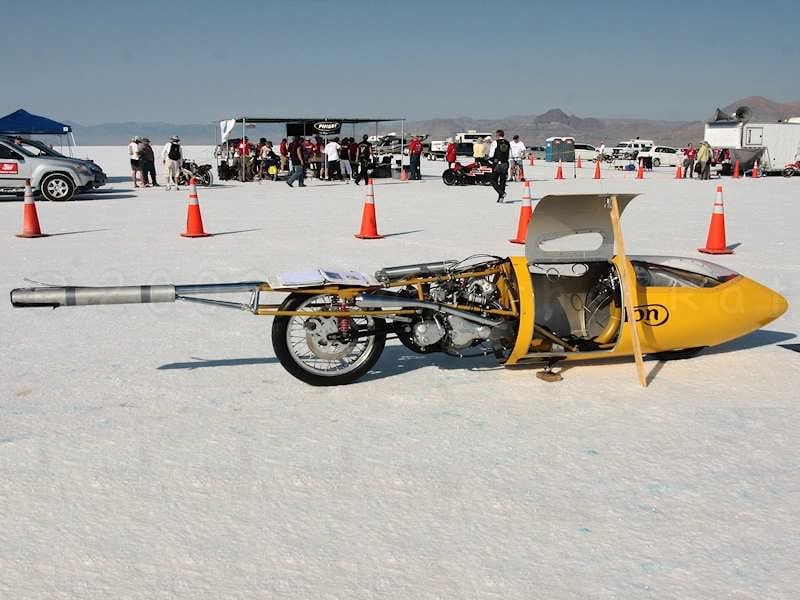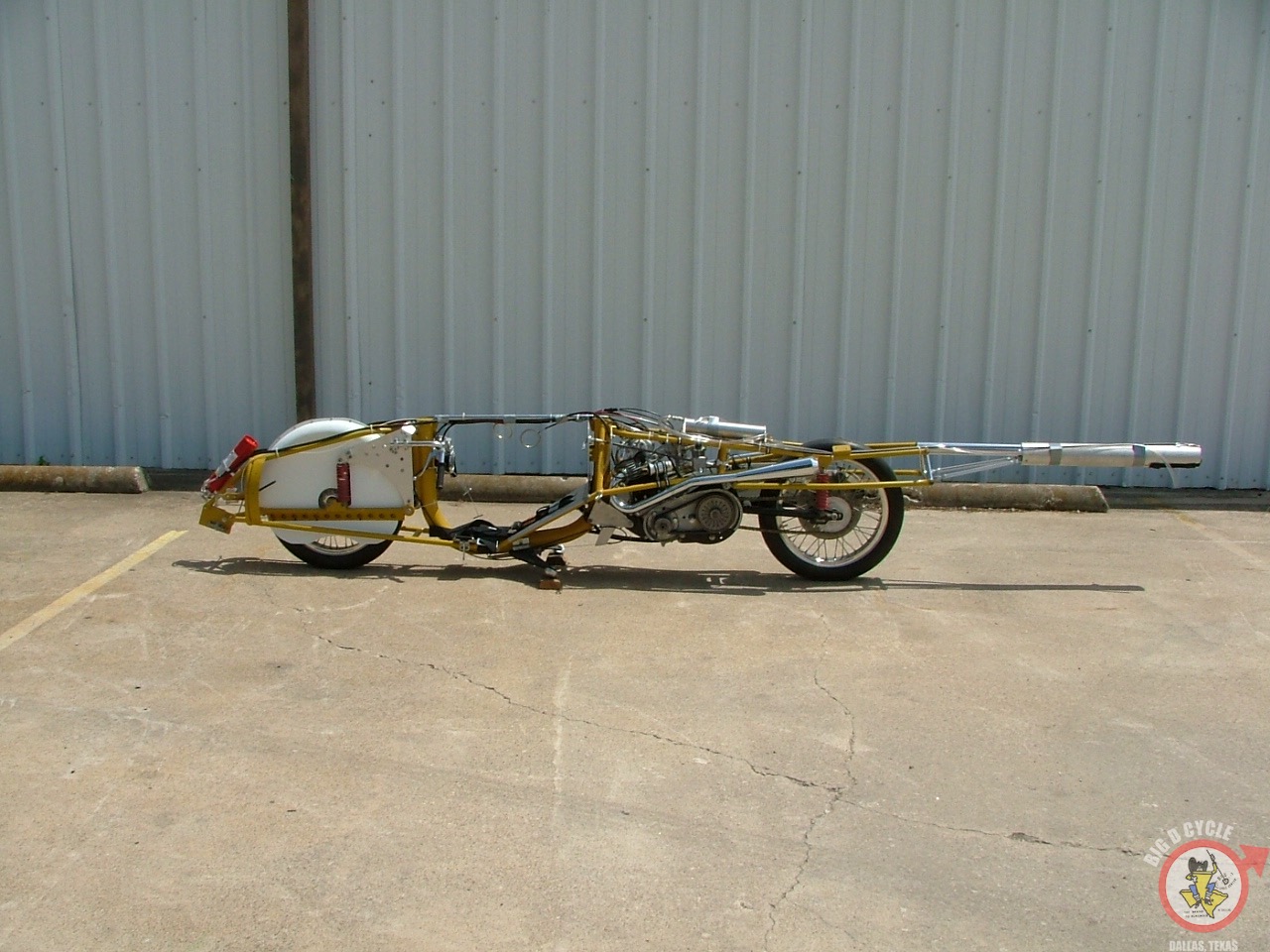Gary Gabelich’s Blue Flame rocket car became the first vehicle to top 1000km/h and Don Vesco’s twin-engined ‘Big Red’ streamliner the first motorcycle to better 400km/h. Then, in what seemed like a page from a fairy tale, Cal Rayborn squeezed into his two-wheeled Harley-Davidson-powered projectile and hit 265.492mph (427km/h).
Among all the exotic machinery on the salt flats that year was a tiny, yellow, knee-high streamliner with a Norton logo on its side. Built up from an ex-Air Force fuel drop tank and powered by a Commando 750cc engine, it took Californian backyard tuner Sam Wheeler into the 200mph club.
At 208mph (335km/h) Sam had built the fastest single-engine Norton in motorcycling history. And it set this record running on pump petrol.
(In 1974 Denis Manning built and ran a 279mph nitro-burning twin-engine Norton streamliner.)
Rather than relying on sheer horsepower, Sam’s streamliner relied on a low frontal area and slippery aerodynamics. It was so small he had to peer around the side of the front wheel to see where he was going.
Sam summed up all that was good about the late 1960s and early 1970s. It was a time when you didn’t go and buy the best to go fast, you made it yourself.
Bonneville lost a legend recently when Sam died from injuries sustained in a 200mph test crash. Aged 72, he was aiming for the 400mph mark in his new streamliner, sponsored by Parts Unlimited and powered by a Vance & Hines turbocharged 1300cc Suzuki Hayabusa engine. He had devoted 50 years to his salt flats addiction. “He did it with his brain, not his wallet,” was how fellow racer and friend Pat McDowell described a life of speed.
I met Sam at Lake Gairdner in 2006 when he came out with Mike Akatiff and his Ack Attack crew. He was a modest, softly spoken man with a keen intellect; it was a privilege to spend time with him and the Ack Attack technicians.
They were a collection of the ultimate seventies motorcycle freethinkers. Mike Akatiff had been BSA racer Jim Rice’s mechanic at the time of the film On Any Sunday. Most of the crew had wrenched in that Californian flat-track and drag-racing era.
They shared an easy camaraderie that people only attain from decades of joint adventures.
Salt racing requires patience and good humour and the crew weren’t fazed by poor surface conditions limiting Sam’s best run to 249mph. They laughed about the booking mix-up with their camper vans. They had ended up with tiny Toyota motorhomes when they thought they were getting full-sized Winnebagos.
They loved talking about those golden days of the early 1970s and their love of tuning British and American motorcycles.
Two-strokes were still not fully trusted then despite Kel Carruthers almost beating BSA 750cc triple racer John Cooper on his 350cc Yamaha at the Ontario race in 1971 for the largest prize money in motorcycle racing history ($US50,000).
Why did Sam choose a Norton engine for his 1970 streamliner? Because it was the most powerful, compact and affordable four-stroke engine available in 1969.
To put Sam’s engine into perspective, consider this: in 1956, Johnny Allen’s Triumph hit 214.4mph at Bonneville running a mix of alcohol and nitro-methane. That was only 6mph faster than Sam’s Commando running pump petrol.

Fast forward to 2006 and there was a ding-dong battle going on between Dennis Manning and his V4-powered BUB Seven streamliner, Mike Akatiff’s twin Hayabusa-engined Ack Attack and Sam’s much smaller EZ Hook, propelled by a single Kawasaki ZX11 engine.
Sam hit 355mph but crashed on the return run when his tyre blew out. Tyres and final drive issues were his major handicaps.
In 2016, contenders once again converged on Bonneville for a tilt at 400mph. Sam was set to be there, and had recently received major backing from Parts Unlimited and Vance & Hines, but it wasn’t to be. At a private test and tune event in August his streamliner flipped into the air and left the veteran pilot with critical injuries. Farewell Sam Wheeler.
By Hamish Cooper

